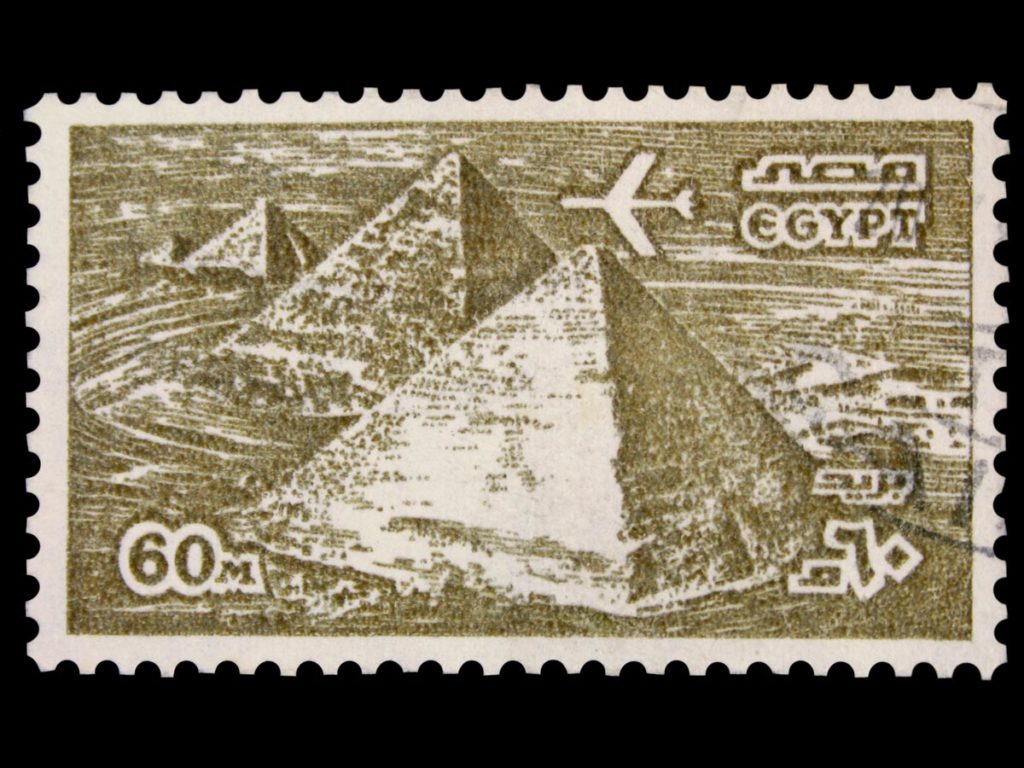The history of Egyptian stamps is one of the most interesting of all countries in Africa. With its coastal cities like Alexandria and Port Said engaged in international commerce, through the country’s various permutations and styles of government, Egypt has always had a dynamic and varied postal history from its earliest days of the modern era. The first century or so of Egyptian postal history also included Sudan.
The first actual Egyptian stamps were issued in 1866, and were overprinted in Turkish. Several other countries had, either before or around this time, issued their own stamps in one form or another for their own use within Egypt; most of these were for post offices in Alexandria (where stamps were issued by France, Austria, Russia, Italy and Greece). Port Said also saw stamps issued by the French for their post office there.
See also: Tunisia rare stamps for philatelists and other buyers
As for Egypt, it was long merged with Sudan; from 1844 to 1914 it was known as the Khedivate of Egypt and Sudan. Interpostal seals from this time are numerous, fascinating, and readily available to collectors. The government sought to assume control of all its postage, and when the Suez Canal Company briefly issued its own postage stamps in 1868, the government quickly put an end to it. These stamps are very highly collectible and tend to fetch high prices from buyers and collectors.
After the British turned the Khedivate into a Sultanate and made the area its Protectorate from 1914 — 1922, the Kingdom of Egypt and Sudan was established, although the British did not actually leave until 1949. Stamps from the Sultanate and from the Kingdom are also readily available to collectors, and help tell the story of Egypt’s slow road to independence and stability.
Browse 1,134 current Egypt stamps and postal collectibles for sale offers here
In 1952, a revolution saw King Farouk exiled and a Republic established. (The official name was, from 1953 to 1958, the Republic of Egypt.) Egypt and Syria formed a union called the United Arab Republic in 1958; Syria left the union in 1961 while Egypt kept the name for itself until 1971.
In 1971, the official name changed to the Arab Republic of Egypt. A few months later, a union was attempted between Egypt, Syria and Libya; this entity, called the Federation of Arab Republics, never fully got off the ground and was dissolved in 1977. During this time, although commemorative stamps were printed for the new Federation, Egypt continued to issue its own stamps.
Since that time, the Arab Republic of Egypt (still the country’s official name) has continued to issue stamps to delight collectors and dedicated philatelists with a penchant for African and/or Middle Eastern history. Building an Egyptian stamp collection can be a major focus for a buyer or a minor one, but either way, there is a variety of philatelic pieces in the region’s history to make it very absorbing and rewarding!










